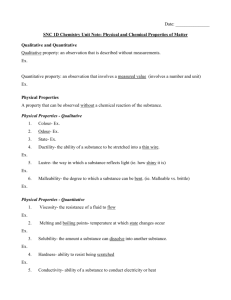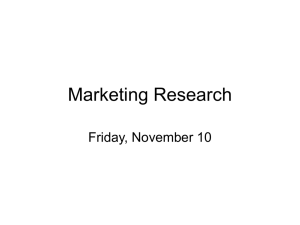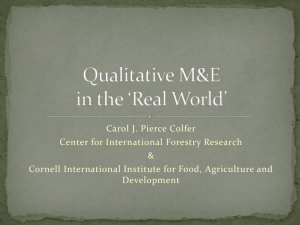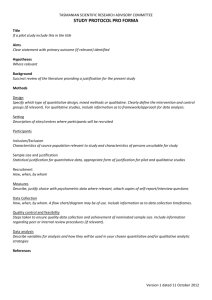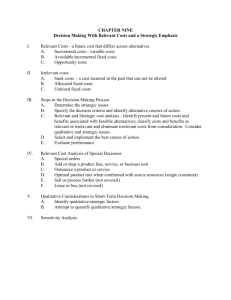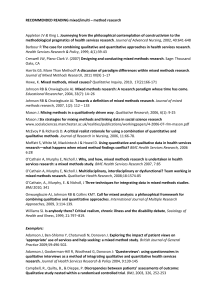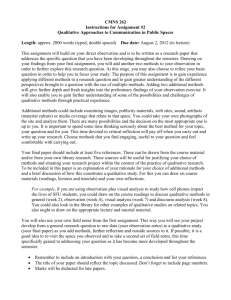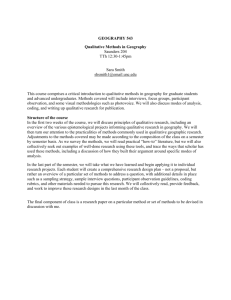abstract
advertisement
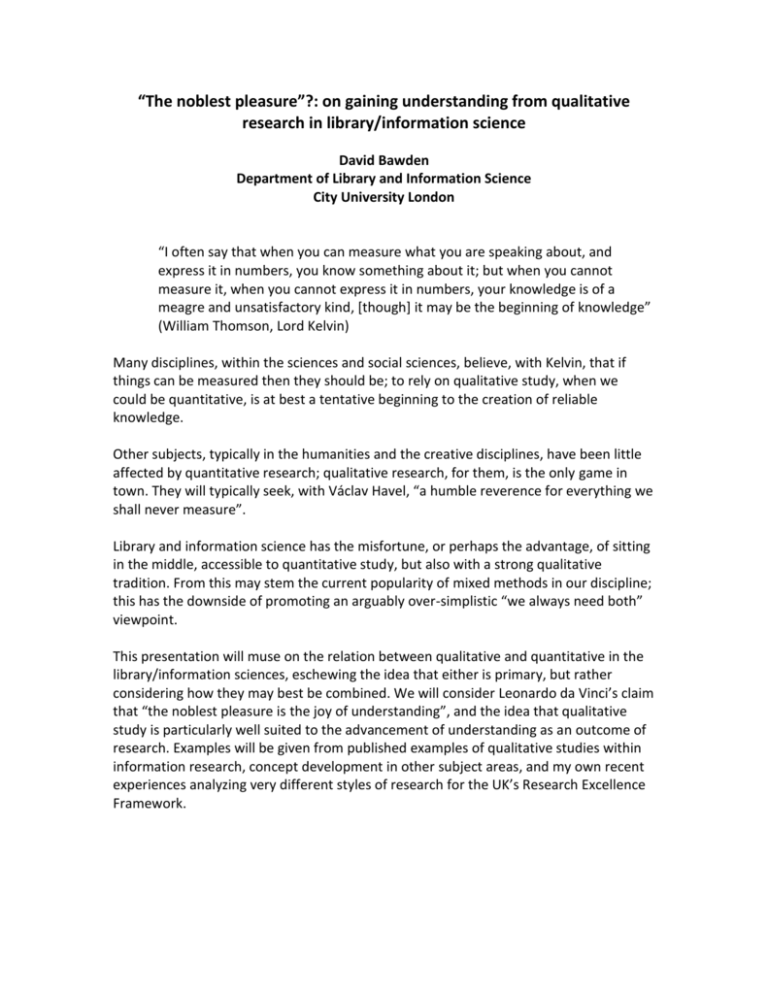
“The noblest pleasure”?: on gaining understanding from qualitative research in library/information science David Bawden Department of Library and Information Science City University London “I often say that when you can measure what you are speaking about, and express it in numbers, you know something about it; but when you cannot measure it, when you cannot express it in numbers, your knowledge is of a meagre and unsatisfactory kind, [though] it may be the beginning of knowledge” (William Thomson, Lord Kelvin) Many disciplines, within the sciences and social sciences, believe, with Kelvin, that if things can be measured then they should be; to rely on qualitative study, when we could be quantitative, is at best a tentative beginning to the creation of reliable knowledge. Other subjects, typically in the humanities and the creative disciplines, have been little affected by quantitative research; qualitative research, for them, is the only game in town. They will typically seek, with Václav Havel, “a humble reverence for everything we shall never measure”. Library and information science has the misfortune, or perhaps the advantage, of sitting in the middle, accessible to quantitative study, but also with a strong qualitative tradition. From this may stem the current popularity of mixed methods in our discipline; this has the downside of promoting an arguably over-simplistic “we always need both” viewpoint. This presentation will muse on the relation between qualitative and quantitative in the library/information sciences, eschewing the idea that either is primary, but rather considering how they may best be combined. We will consider Leonardo da Vinci’s claim that “the noblest pleasure is the joy of understanding”, and the idea that qualitative study is particularly well suited to the advancement of understanding as an outcome of research. Examples will be given from published examples of qualitative studies within information research, concept development in other subject areas, and my own recent experiences analyzing very different styles of research for the UK’s Research Excellence Framework.




